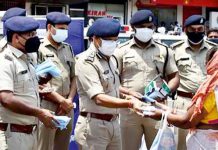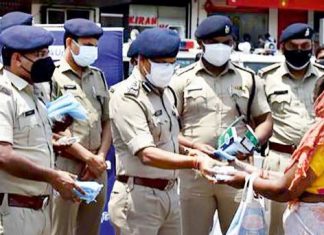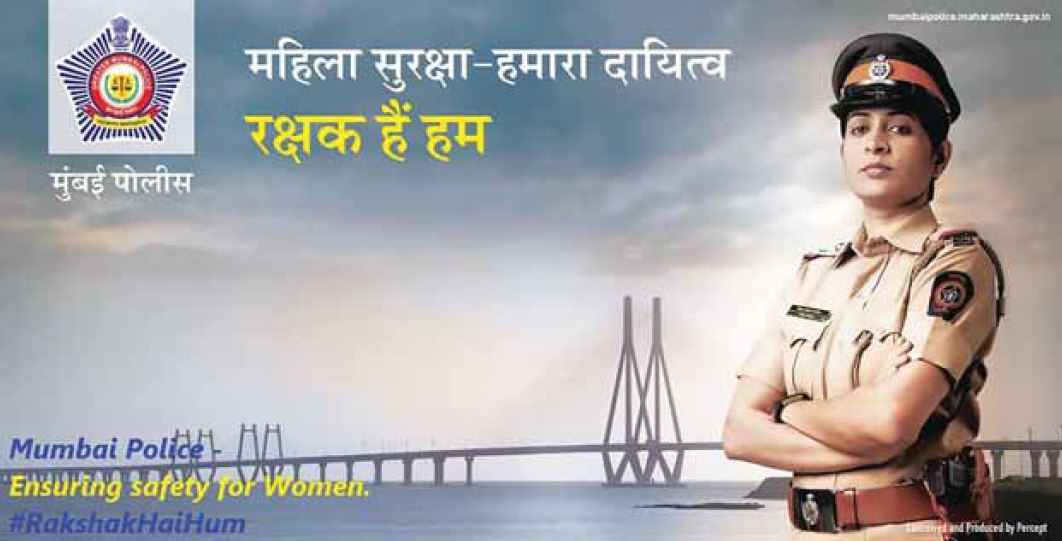
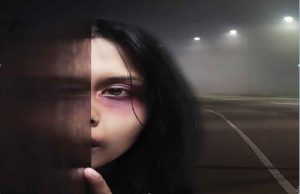 Women safety is a vital topic in India. Attack on women has increased drastically in the past few years. A woman is God’s best creation, yet the worst sufferer. It is even shameful to admit that India is unsafe for women. According to the National Crimes Records Bureau (NCRB), India recorded 88 rape cases every day in 2019. The NCRB report highlights that rape vulnerability of girl or women has increased up to 44% in the last ten years. We see cases of gang rape, brutal murder, protest, demonstrations and online petitions daily.
Women safety is a vital topic in India. Attack on women has increased drastically in the past few years. A woman is God’s best creation, yet the worst sufferer. It is even shameful to admit that India is unsafe for women. According to the National Crimes Records Bureau (NCRB), India recorded 88 rape cases every day in 2019. The NCRB report highlights that rape vulnerability of girl or women has increased up to 44% in the last ten years. We see cases of gang rape, brutal murder, protest, demonstrations and online petitions daily.
Government bodies and the Police Department are trying their level best to minimize the number of cases taking place against women by educating them on how they should react when such an incident take place.
The Maharashtra Police have, in the past, launched several initiatives to tackle crime against women. A mobile application and a mobile van, popularly known as Damin Patak was launched, which turn out to be a vital step in safeguarding the women of the country.
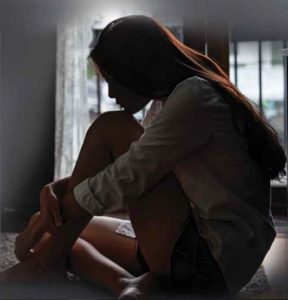 Streets, bus stands, railway stations, parks and other public places should be for everyone to access and enjoy. Yet, for many women, they are areas for scenes of harassment. Every day, women face a systemic assault on their fundamental right to free movement and personal dignity. Sexual harassment at public places is unwelcome, unsolicited behaviour of a sexual nature including staring, gesticulating, touching, passing comments, trailing. These may not seem to be a big problem, but they can be quite upsetting. It makes women feel ashamed, humiliated or frightened.
Streets, bus stands, railway stations, parks and other public places should be for everyone to access and enjoy. Yet, for many women, they are areas for scenes of harassment. Every day, women face a systemic assault on their fundamental right to free movement and personal dignity. Sexual harassment at public places is unwelcome, unsolicited behaviour of a sexual nature including staring, gesticulating, touching, passing comments, trailing. These may not seem to be a big problem, but they can be quite upsetting. It makes women feel ashamed, humiliated or frightened.
Several studies conducted around the world show that women of all ages and wearing all kinds of clothes are vulnerable to harassment. A study done by Delhi Police showed that 82% of women who were part of the survey were wearing every day, non-provocative clothes when they were harassed (salwar kameez, trouser-top, saree).
Is harassment only committed by certain types of people?
This is a commonly-held perception. The issue is not of one’s class but of one’s mindset, which, because of their twisted misconception, feel that women are easy targets.
 How to Deal with Sexual Harassment
How to Deal with Sexual Harassment
- It is not possible to have one single strategy to address this. It is important to make a judgment on the spot depending on the context.
- Learn to say ‘NO’ loudly and clearly. Prepare a stock sentence (like “Stop staring at me”) and practice saying it to yourself until it becomes a reflex. If you are harassed, repeat it again and again till you feel confident to use in a public place.
- Learn to develop confidence in yourself. Look straight at people who accost you and speak clearly and calmly in response to their unwelcome actions. Show others that you are aware of your rights and space.
- If you are on a bus, the driver and conductor can be approached for complaints. As per law, they should assist the victim by accompanying them to the nearest police station.
- Carrying with you safety pins and learning self-defence techniques can be helpful.
- Inform your parents/friends if you are harassed regularly. It can be therapeutic to get that kind of support. Many women face this problem and understand what you are also experiencing.
What Can Men Do to Stop Harassment?
- Don’t do it yourself. Learn about the problem so that you become more sensitive to what might offend others.
- Do not cooperate with groups of men who harass. Act to frustrate or oppose harassment. Do not cooperate with harassment. Refuse to join in.
- At a suitable occasion, raise issues about sexual harassment.
- Show your opposition strongly.
- If you notice a situation where a woman looks like she is being harassed, you may be able to help her.
- If someone is badgering her, you could go over and ask, “Is someone bothering you?” If a woman in a crowd shouts out about being pawed, you might be able to voice a supportive comment to the crowd, such as, “Whoever did that, it’s not welcome.”
Steps Taken by Maharashtra Police for Women Safety
PAW (Prevention of Atrocities on Women) Cell:
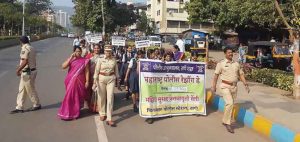 The Maharashtra Government (Home Department) vide its G.R.No.PPA 1394/ 5/Pol-8, dtd.29.09.1995, had initially established a PAW (Prevention of Atrocities on Women) Cell at the Maharashtra State Police Headquarters, Mumbai. It is presently functioning from the State CID Crime Office, Sangambridge, Pune. The Cell is headed by an officer of the rank of Spl. Inspector-General of Police.
The Maharashtra Government (Home Department) vide its G.R.No.PPA 1394/ 5/Pol-8, dtd.29.09.1995, had initially established a PAW (Prevention of Atrocities on Women) Cell at the Maharashtra State Police Headquarters, Mumbai. It is presently functioning from the State CID Crime Office, Sangambridge, Pune. The Cell is headed by an officer of the rank of Spl. Inspector-General of Police.
Mahila Police Kaksha (Women Help Desk):
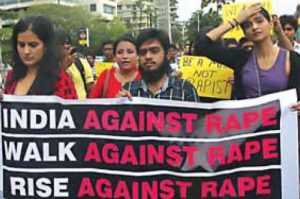 In Maharashtra, prevention, detection and investigation of crime against women are dealt with by the jurisdictional police stations. The Director-General of Police, Maharashtra, has issued circulars to create a Mahila Police Kaksha in each police station to handle cases regarding crime against women. As per availability, women police officers and police constables are appointed in these Cells. 975 such Cells have been established to date.
In Maharashtra, prevention, detection and investigation of crime against women are dealt with by the jurisdictional police stations. The Director-General of Police, Maharashtra, has issued circulars to create a Mahila Police Kaksha in each police station to handle cases regarding crime against women. As per availability, women police officers and police constables are appointed in these Cells. 975 such Cells have been established to date.
Mahila Suraksha Samittee:
These Committees are established in all headquarters of all the 45 Police Units and all Police Stations. They provide legal assistance to women in crises with the help of police intervention. These cells include women doctors, women advocates, women professors, social workers, etc.
Social Security Cells:
Social Security Cells function in the police headquarters. These units investigate cases related to crime against women. 33 such cells have been established thus far.
Special Counseling Centers (SCC):
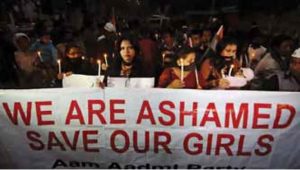 Up to 90 SCCs are presently functioning in Maharashtra within the premises of police stations. All the facilities i.e., separate office, toilet, furniture, telephone, etc., are provided to them by the police department. These centres work in coordination with the Women and Child Welfare Department, as per the directions of the Hon. High Court. These centres help women in crises, especially family disputes. The Maharashtra Government has approved 54 more new cells.
Up to 90 SCCs are presently functioning in Maharashtra within the premises of police stations. All the facilities i.e., separate office, toilet, furniture, telephone, etc., are provided to them by the police department. These centres work in coordination with the Women and Child Welfare Department, as per the directions of the Hon. High Court. These centres help women in crises, especially family disputes. The Maharashtra Government has approved 54 more new cells.
Help Centers at S.T. Stands:
To prevent immoral trafficking of women and children, 330 help centres are set up at S.T. Stands as per the recommendation of the Justice Dharmadhikari Samittee.
Measures Taken to Preventive Female Foeticide:
For the effective implementation of 1) Pre–Conception and Pre–Natal Diagnostic Techniques (Prohibition of Sex Selection) Act – 1994 (PCPNDT), 2) Medical Termination of Pregnancy Act – 1971 (MTP), a police officer of the rank of Dy SP/ACP is appointed as a nodal officer.
Helpline:
To help women in distress, a toll-free helpline number – 103 – has been activated in Mumbai, Thane and Navi Mumbai Police Units. The toll-free helpline number for the rest of Maharashtra is 1091.
 Special Juvenile Police Unit and Child Welfare Officer:
Special Juvenile Police Unit and Child Welfare Officer:
Child Welfare Committee and Juvenile Justice Boards have been formed in all the districts of Maharashtra to protect and care children in distress. A Special Juvenile Police Unit is formed in all 45 Police Units. A police officer is appointed as a Child Welfare Officer in 1028 police stations.
Protection of Children from Sexual Offence Act 2012:
Training has been given to police officers and men to register cases under this Act. 152 training workshops have been arranged in all police units, and 1705 officers and 4548 men have been trained to implement this law effectively.
Domestic Violence Act 2005:
This Act has been enforced to protect women from domestic violence. This Act is implemented by Protection Officers appointed by the Women and Child Welfare Department.
Special & Fast Track Courts:
 For the speedy disposals of cases of crimes against women, Special Courts at Ahmednagar, Akola, Amaravati, Aurangabad, Buldhana, Beed, Jalgaon, Nagpur, Yawatmal, Thane, Pune and Kolhapur are in operation along with a special court for cases of immoral trafficking at Mumbai. 25 Fast Track Courts are being proposed for disposal of criminal cases relating to atrocities on women and mentally-handicapped girls.
For the speedy disposals of cases of crimes against women, Special Courts at Ahmednagar, Akola, Amaravati, Aurangabad, Buldhana, Beed, Jalgaon, Nagpur, Yawatmal, Thane, Pune and Kolhapur are in operation along with a special court for cases of immoral trafficking at Mumbai. 25 Fast Track Courts are being proposed for disposal of criminal cases relating to atrocities on women and mentally-handicapped girls.
Preventive Action for Dowry Death:
Under the Government of Maharashtra Resolution No.DPA-1083/80519/CA-3, Dtd. 29/1/1985, District Vigilance Cells have been formed in each district of Maharashtra. The District Collector is the President of these cells, and the Superintendent of Police, social welfare officers, advocates, women medical officer, principals of local colleges, social workers and members of women organizations are part of these cells. The District Collector organize a meeting for this Cell every quarterly.
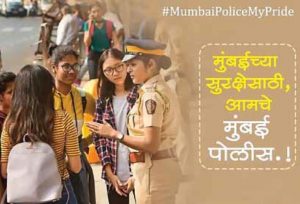 Complaint Committees at the Workplace:
Complaint Committees at the Workplace:
As per the Vishakha Guidelines of the Hon. Supreme Court, New Delhi, these Committees are established in all 45 police units’ headquarters and at the State CID Office, Pune. These Committees tackle complaints related to sexual harassment in the workplace.
Sensitising Police Officers and Men towards the Complaints of Women:
The curriculum of the basic training programme of police officers at Maharashtra Police Academy, Nashik, includes laws related to crime against women and children, and gender issues.
Justice Dharmadhikari Samittee:
To prevent crime against women, the Government of Maharashtra has formed a committee under the Chairmanship of Retired Justice, Shri Chandrashekhar Dharmadhikari. This Committee submitted three interim reports to the government. The suggestions from the first two interim reports are being implemented by the Police Department. Implementing the suggestions from the third interim report is under consideration.
Anti-Human Trafficking:
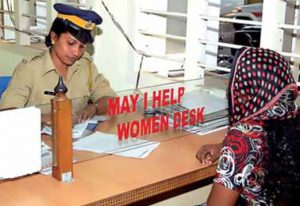 The Maharashtra State has established the Anti Human Trafficking Cell on 31/03/2008 under the Crime Investigation Department, M.S. Pune, to have an effective, prompt and speedy action to solve the various problems of Anti-Human Trafficking. The Special Inspector General of Police (PAW) CID, M.S. Pune, has been nominated as a nodal officer for the State of Maharashtra.
The Maharashtra State has established the Anti Human Trafficking Cell on 31/03/2008 under the Crime Investigation Department, M.S. Pune, to have an effective, prompt and speedy action to solve the various problems of Anti-Human Trafficking. The Special Inspector General of Police (PAW) CID, M.S. Pune, has been nominated as a nodal officer for the State of Maharashtra.
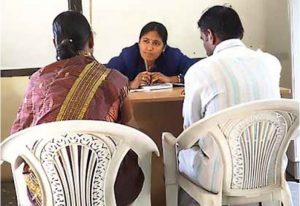 12 Anti-Human Trafficking units have been established in Maharashtra. These units function in Mumbai, Thane City, Thane Rural, Pune, Sangli, Nagpur, Ahmednagar, Navi Mumbai, Solapur City, Beed, Kolhapur and Yavatmal. The State Nodal Officer, Maharashtra, has attached two NGOs and an officer from the Women and Child Department. to each of the AHTUs so they become a wholesome unit dedicated to the cause of Anti-Human Trafficking. These AHTUs have been equipped with infrastructure and are taking a lead in conducting rescue operations. Various rescue operations have been conducted where victims have been rescued and traffickers arrested from the time these Units have been established. Police Inspectors working in the Social Service Branch in the Commissionerate and the District Crime Branch of Maharashtra Police have been notified as a Special Police Officer for Anti-Human Trafficking.
12 Anti-Human Trafficking units have been established in Maharashtra. These units function in Mumbai, Thane City, Thane Rural, Pune, Sangli, Nagpur, Ahmednagar, Navi Mumbai, Solapur City, Beed, Kolhapur and Yavatmal. The State Nodal Officer, Maharashtra, has attached two NGOs and an officer from the Women and Child Department. to each of the AHTUs so they become a wholesome unit dedicated to the cause of Anti-Human Trafficking. These AHTUs have been equipped with infrastructure and are taking a lead in conducting rescue operations. Various rescue operations have been conducted where victims have been rescued and traffickers arrested from the time these Units have been established. Police Inspectors working in the Social Service Branch in the Commissionerate and the District Crime Branch of Maharashtra Police have been notified as a Special Police Officer for Anti-Human Trafficking.
Regular training workshops have been held for police officers, NGOs and prosecutors to sensitize them regarding anti-human trafficking and its seriousness and impact on society to develop a victim-friendly approach and to enhance their investigative skills.

